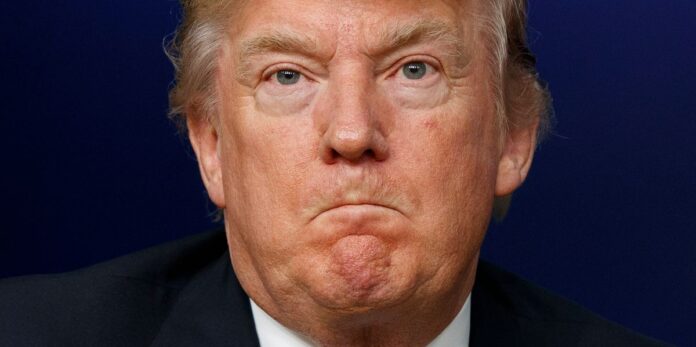“Trump’s open door to white South Africans fuels conspiracy theory”
In a recent statement, former President Donald Trump has once again made headlines with his open door to white South Africans, buying into a conspiracy theory perpetuated by a controversial report from Axios. At a recent political event, Trump stated, “I have a lot of friends in South Africa. They’re incredible people. They have tough problems. We’re going to help them out. We’re going to help them so much. We’re going to have a good relationship. But they’re in a very, very difficult position. We’re going to help them out. We want to help them out.” This statement has raised concerns about the potential spread of misinformation and the perpetuation of conspiracy theories.
This is not the first time Trump has made controversial and unsubstantiated claims. In the past year, he has spread numerous false narratives, including baseless claims of widespread voter fraud in the 2020 presidential election and unfounded allegations about the origins of the COVID-19 pandemic. According to fact-checkers, Trump made over 30,000 false or misleading statements during his time in office, averaging about 20 lies per day.
Experts and political analysts have expressed concerns about the impact of Trump’s false claims on public discourse and trust in institutions. Studies have shown that misinformation can influence public opinion and behavior, leading to a erosion of trust in democratic institutions and potential incidents of unrest or violence. Moreover, Trump’s history of making false statements and spreading misinformation has raised questions about the integrity of public discourse and the potential for long-term damage to democratic norms.
The controversy surrounding Trump’s statements has also led to legal issues and challenges. In the aftermath of the 2020 election, numerous lawsuits were filed to challenge the legitimacy of the results, based on Trump’s unfounded claims of voter fraud. The spread of misinformation has also been linked to incidents of unrest and violence, further raising concerns about the impact of false narratives on public safety and social stability.
In conclusion, Trump’s open door to white South Africans and his propensity for spreading conspiracy theories and misinformation continues to raise serious concerns about the integrity of public discourse and trust in institutions. As the impact of false claims becomes increasingly apparent, it is crucial to maintain a factual approach to reporting on Trump’s statements, providing context, fact-checking, and presenting verified facts that contradict false or misleading statements. It is important for readers to remain vigilant and informed in the face of misinformation and to critically evaluate the veracity of statements made by public figures.
Source link
Redirect URL
